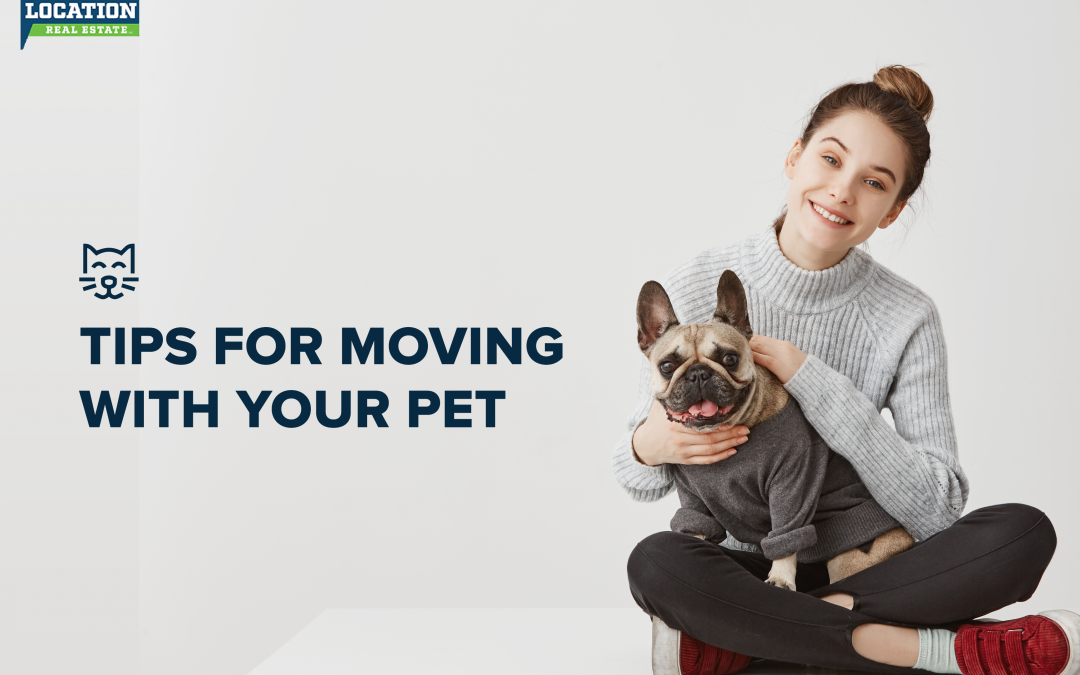Moving to a new home can be stressful. All the processes, such as cleaning, packing, lifting (then repeating the entire cycle in your new home), could be stressful. Besides, a lot of change is involved when you’re moving. You are going to miss your present haven and the anxiety of adjusting to a new neighborhood and living space will give you sleepless nights. Like humans, moving could take a toll on your pets’ well-being (both emotional and physical) if they are unprepared.
Whether you are moving locally, or out of state, you need a lot of strategic planning. While you are busy planning on moving your stuff to your new home, do not forget to prep up your pets so that they feel at home in the new place.
Are you looking for a home in Nebraska? Our team at Location Lincoln will help you find your dream home at the best price.
In this article, we will discuss a few tips that will make the transition easier for your pets.
-
Before moving:
-
Start the preparation
Packing is always the first step when you move from one place to another. Before you start packing, let the supplies sit out in your home for a while, allowing your pets to desensitize the supplies before these go into the box.
-
Suitcase and pet carriers
In most cases, a suitcase tells your pet that you are planning on leaving, and they get this feeling of being abandoned by you. However, the pet carrier indicates that there might be a trip to the vet. When a suitcase and pet carrier sit out for some time, they assume that something is going to transpire soon.
-
Tend to them as usual
Changing your pet’s routine might cause them discomfort. Stick to their routines. For example, if you take your dog for walks in the evening, continue with that. Like your pet, you too can do with some fresh air (it will help you to blow off some steam).
-
Consult your vet
Some pets might get stressed easily. Consult with your vet and discuss your vet’s condition. They might prescribe medications for anxiety. These medications will help keep your pet calm when you move, making the transition easier for everyone at home.
-
Train your pet to spend time in crates
If you are moving locally, you do not have to crate train your pet. But for longer distances, it is ideal to have your pet crate trained before you move. If you wait till the last moment to put them in a crate, it will stress them out. Also, if you are traveling a significant distance, keep a list of some of the pet-friendly hotels on the way.
-
-
During the move:
Besides carrying food and water, pack a few of your pet’s favorite toys, bedding, or anything that offers them comfort.
Anything can happen on the road, so it is ideal to carry medical records and even a current photo of your pet (in case the unthinkable happens).
While on the road, give importance to their safety. Ensure your pet has sufficient ventilation. You can include safety belts to keep them secure in the car.
If your pet has a sensitive stomach, don’t overfeed while on the road. Also, check for short hikes, or pet-friendly parks on the way, so that you can take a break.
-
After the move:
Is your new home pet-proof?
If not, have your new home pet-proofed. If there are any nooks where your pet might get stuck, plug those nooks up. Secure your windows with screens. If there are any poisonous houseplants, have them removed. Examine your home for any pest-control poison traps and get rid of those.
Once you reach the new home, think before letting your pet loose to explore because the new space can be overwhelming to your pet, just like any of us.
At first, you can help them adjust to maybe one or two rooms (where you can include some of their favorite treats, toys, food bowls, and litter boxes for your cats).
As they get comfortable, you can take them to the other rooms in the house. Shut the doors of the other rooms.
You can’t expect your pets to adjust to their new surroundings overnight. Change is stressful, and it will take time for your pet to adapt to the new situation. While your pet adapts, you can create a safe space and reinforce positive behavior. Also, try to spend more time interacting with your pet while they try to adapt to the new place.
If you’re looking for a home in Lincoln, we can help you get the best deal.
Contact us today.

